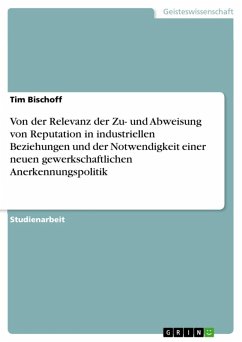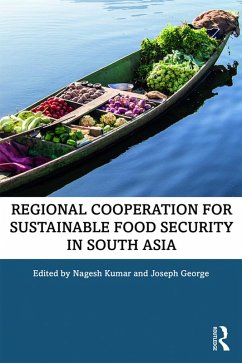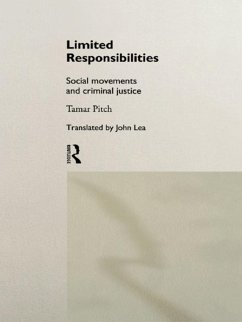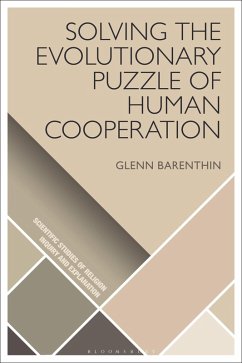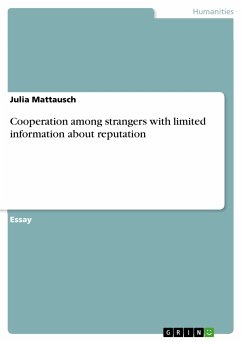
Cooperation among strangers with limited information about reputation (eBook, ePUB)

PAYBACK Punkte
0 °P sammeln!
Essay from the year 2007 in the subject Sociology - Individual, Groups, Society, grade: 1,7, Friedrich-Alexander University Erlangen-Nuremberg, language: English, abstract: Today, nearly all organizations have to negotiate and cooperate with "strangers", that means with trading partners (individuals or organizations) of which none or few informa-tion is available. One reason is the increasing trade and communication via internet in or-ganizations. But also in private transactions we often have to deal or to cooperate with un-known individuals, for example in the case of buying something on Eba...
Essay from the year 2007 in the subject Sociology - Individual, Groups, Society, grade: 1,7, Friedrich-Alexander University Erlangen-Nuremberg, language: English, abstract: Today, nearly all organizations have to negotiate and cooperate with "strangers", that means with trading partners (individuals or organizations) of which none or few informa-tion is available. One reason is the increasing trade and communication via internet in or-ganizations. But also in private transactions we often have to deal or to cooperate with un-known individuals, for example in the case of buying something on Ebay or similar online-portals. The amount of institutional intervention which is necessary to ensure efficient co-operation in markets and organizations, in circumstances where interactions take place among essentially strangers, depends critically on the amount of information informal reputation mechanisms need to transmit (Bolton et al., 2004). One important factor to enforce cooperation in small groups or in information-tracking organizations is reputation. When you think for example of credit-agencies, the willingness to afford a loan increases with the amount of information and reputation of the customer - of course the information has to fit the existing terms. In contrast, the effectiveness of reputation in circumstances where persons are essentially strangers, knowing about one another only through word-of-mouth, is far less certain. The issue is important because word-of-mouth mechanisms are typically less costly than formal institutional interventions such as legal contracts. The central question to be answered in the presented experiment of Bolton, G. E. et al. (2004) is what information is necessary about reputation to support cooperative effort among strangers. The experiment indicates that even without any reputation information there is an amount of cooperation that is, however, influenced by the cooperation costs. For high costs, providing information about a partner's immediate past action increases coop-eration. Recursive information about the partners' previous partners' reputation further promotes cooperation, regardless of the cooperation costs.
Dieser Download kann aus rechtlichen Gründen nur mit Rechnungsadresse in A, B, BG, CY, CZ, D, DK, EW, E, FIN, F, GR, HR, H, IRL, I, LT, L, LR, M, NL, PL, P, R, S, SLO, SK ausgeliefert werden.








